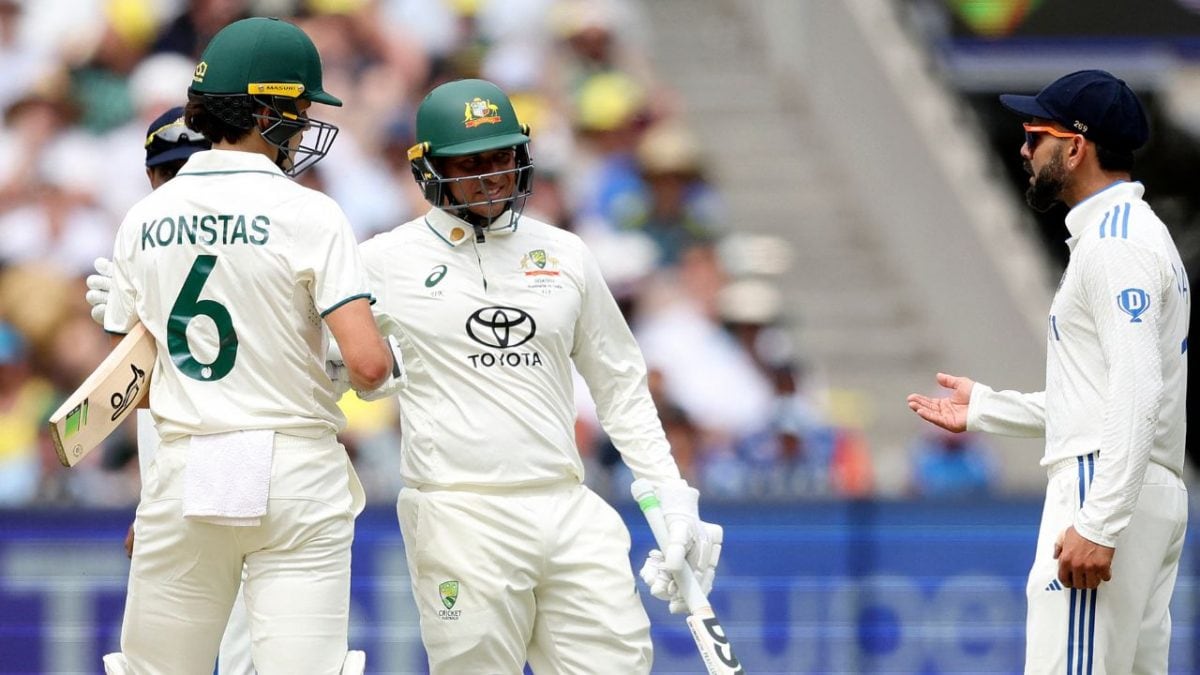

Former England captain Michael Atherton has weighed in on the spirited exchanges during the recent Lord's Test between England and India, sparking discussions about on-field conduct and the boundaries of competitive intensity. In his column for The Times, Atherton reflected on the enthralling nature of the match while also addressing specific incidents that raised questions about the spirit of the game.
Atherton began by acknowledging the passion and commitment displayed by both teams throughout the Lord's Test. He noted that the spectators appreciate seeing players who care deeply about representing their team and country. However, he also cautioned against allowing this passion to cross the line into physical altercations or sustained verbal abuse.
To illustrate his point, Atherton referenced the shoulder barge incident involving Virat Kohli and Australian player Sam Konstas during the Boxing Day Test in Melbourne last December. Atherton stated that there is no place for such deliberate physical contact on the cricket field. He described Kohli's action as unnecessary and against the spirit of the game, echoing the sentiments of many who criticized the incident at the time. Kohli was fined 20% of his match fee for the act. In 2019, he pleaded guilty following a similar shoulder barge on South Africa's Beuran Hendricks.
Atherton contrasted the Kohli-Konstas incident with a collision between Ravindra Jadeja and Brydon Carse during the Lord's Test. He suggested that the Jadeja-Carse incident was accidental, with both players focused on the ball and unaware of each other's path. This distinction highlighted Atherton's view that intent is a crucial factor in determining whether an on-field incident is acceptable or not.
Atherton also addressed the heated moment between Mohammed Siraj and Ben Duckett during the Lord's Test. Siraj gave Duckett a fiery send-off after dismissing him, making shoulder contact in the process. The Indian pacer was subsequently fined 15% of his match fee and received a demerit point from the ICC. While acknowledging that Siraj's behavior may have warranted a penalty, Atherton defended the Indian seamer’s emotional outburst to an extent. He sought to distinguish between passionate expression and outright aggression, suggesting that a line must be drawn between displays of commitment and actions that cross into inappropriate behavior.
Atherton wrote, "Forgive me for degrading the report of a great match with this nonsense, but wouldn't spectators rather see players caring too much, rather than too little, about playing Tests?". He also pointed out another intense moment from the Lord's Test — the mid-pitch collision between Ravindra Jadeja and England's Brydon Carse. While the clash was unintentional, it only added to the already heated atmosphere of the Test. “Both players were ball-watching rather than minding each other's path,” Atherton noted.
In conclusion, Michael Atherton's reflections on the Lord's Test underscore the delicate balance between passion and sportsmanship in cricket. While he acknowledged the importance of players caring deeply about the game, he also emphasized the need to maintain physical boundaries and avoid unnecessary aggression. By referencing the Kohli-Konstas incident, Atherton highlighted the importance of upholding the spirit of the game and ensuring that on-field interactions remain within acceptable limits.